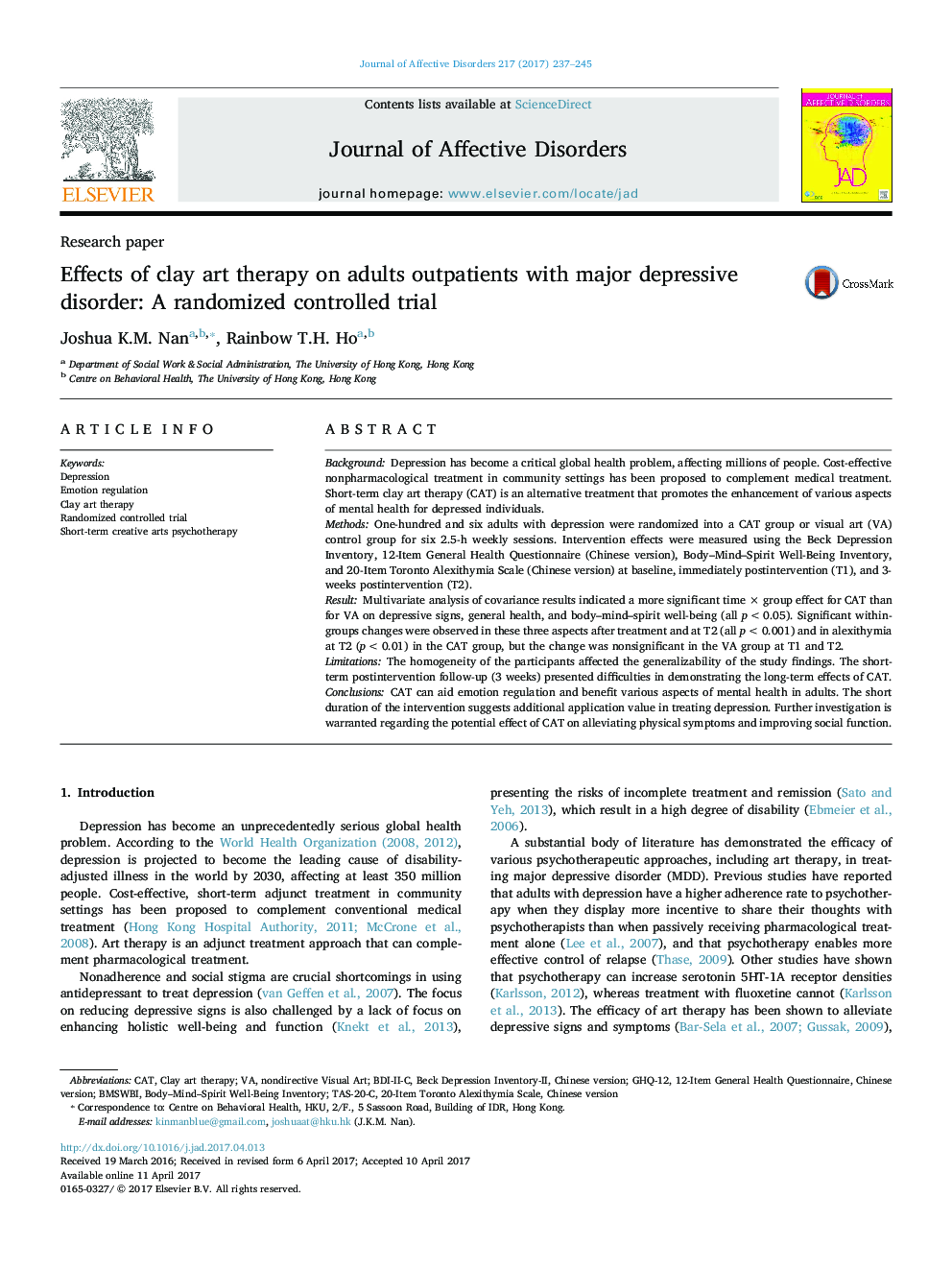| کد مقاله | کد نشریه | سال انتشار | مقاله انگلیسی | نسخه تمام متن |
|---|---|---|---|---|
| 5722207 | 1608108 | 2017 | 9 صفحه PDF | دانلود رایگان |
- A short-term clay art therapy (CAT) in community settings is proposed for treating depression.
- CAT is cost-effective and nonpharmacological that complements medical treatment.
- CAT aids affect regulation and benefits various aspects of mental health in adults.
- The treatment processes of CAT involve multisensory and psychological processes.
- The results of the CAT treatment reveal a positive effect on alexithymia.
BackgroundDepression has become a critical global health problem, affecting millions of people. Cost-effective nonpharmacological treatment in community settings has been proposed to complement medical treatment. Short-term clay art therapy (CAT) is an alternative treatment that promotes the enhancement of various aspects of mental health for depressed individuals.MethodsOne-hundred and six adults with depression were randomized into a CAT group or visual art (VA) control group for six 2.5-h weekly sessions. Intervention effects were measured using the Beck Depression Inventory, 12-Item General Health Questionnaire (Chinese version), Body-Mind-Spirit Well-Being Inventory, and 20-Item Toronto Alexithymia Scale (Chinese version) at baseline, immediately postintervention (T1), and 3-weeks postintervention (T2).ResultMultivariate analysis of covariance results indicated a more significant time à group effect for CAT than for VA on depressive signs, general health, and body-mind-spirit well-being (all p<0.05). Significant within-groups changes were observed in these three aspects after treatment and at T2 (all p<0.001) and in alexithymia at T2 (p<0.01) in the CAT group, but the change was nonsignificant in the VA group at T1 and T2.LimitationsThe homogeneity of the participants affected the generalizability of the study findings. The short-term postintervention follow-up (3 weeks) presented difficulties in demonstrating the long-term effects of CAT.ConclusionsCAT can aid emotion regulation and benefit various aspects of mental health in adults. The short duration of the intervention suggests additional application value in treating depression. Further investigation is warranted regarding the potential effect of CAT on alleviating physical symptoms and improving social function.
Journal: Journal of Affective Disorders - Volume 217, 1 August 2017, Pages 237-245
